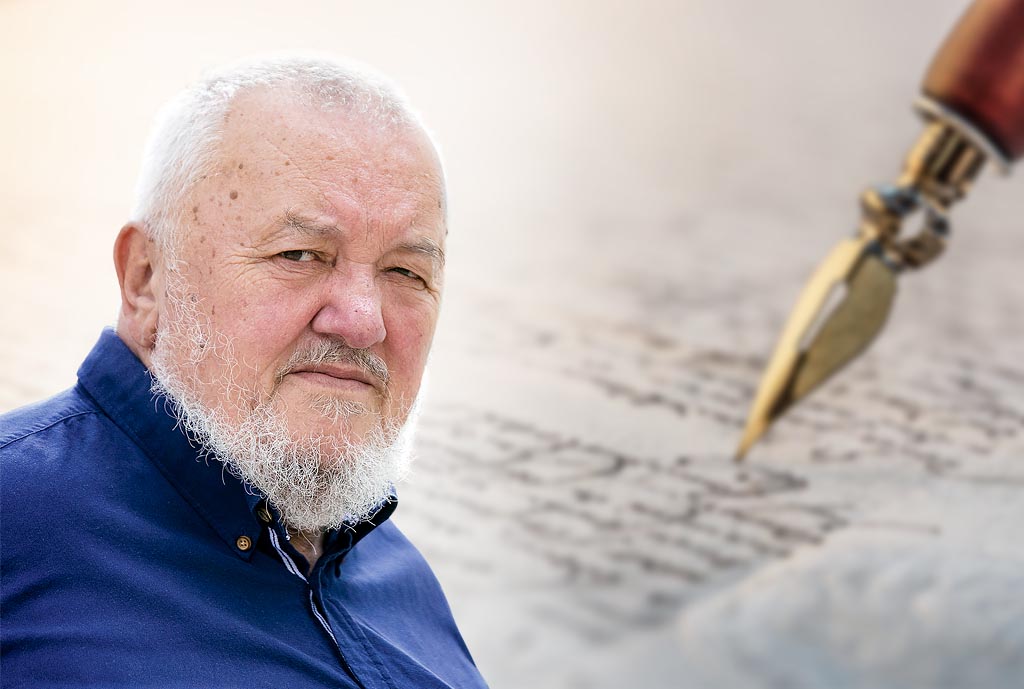By: Dr Stane Granda
A pashalik led by a pasha was an administrative unit with a certain degree of internal autonomy within the Turkish state. Politically, it was tightly controlled and economically exploited. The consequences were constant social and economic stagnation and even regression.
Warning especially foreigners about the subordination of Slovenia to Belgrade and its dire consequences is increasingly settling into the broader Slovenian consciousness. The OECD even notes general regression, not just relative. Countries that were always behind us are overtaking us. Many are increasingly unclear as to why we Slovenians gained independence and what we have gained from it. Doubt is creeping in as to whether we are truly independent anymore. The Belgrade pasha in the person of the Ljubljana mayor, who does not hide his connections, is becoming our absolute ruler. As Prešeren already noted, Slovenians are impressed by monetary upstarts. Big ideas, which took over 70 years to accept for an independent Slovenia, are adopted slowly. Only in 1991 did the majority realise that Yugoslavia was bringing us to poverty. The current material state is also one of the fuels for the success of new faces.
“Do not get upset about Kosovo, as you got Slovenia,” has been a striking Belgrade saying for some time. The 70-year mental conditioning of Slovenians in Yugoslavia, led by Yugoliberals and then Yugocommunists, has in the last decade been furthered by some top intellectuals who fled from Milošević and actually took refuge in Ljubljana, where the mayor prepared the ground for them. They are realising their political dreams here. The cyclists were led by a man from Belgrade. The fact that he replaced antique trading in the former Yugoslavia with mansions in Slovenia means nothing to him. Nor does becoming Kučan’s successor. For him, the key positions of the Belgrade pasha and the benefits of the local pashalik are crucial.
Much is known and written about the economic exploitation by the Ljubljana pasha. More severe and fatal is the control of public opinion, which affects the changing Slovenian character. Recently, we remembered Srebrenica. For the first time, the memorial day had an international context, as it was declared by the UN. Serbia denies genocide. The Ljubljana pasha has never called the crime against Bosniaks a genocide either, otherwise, he would not be the best friend of Serbian leaders in Belgrade and Republika Srpska. We were shocked by the kinship, the identical Slovenian and Belgrade words and arguments denying the massacre in Srebrenica and the post-World War II killings in Slovenia. It is as if they were identical twins. Kučan’s pro-Russian peacemakers share a contempt for the fight for democratic Ukraine and Putin’s disregard for trampling fundamental human rights and covering up crimes. Slovenia is becoming less Slovenian and more Belgrade-oriented. This is more frightening than the economic exhaustion of Slovenia. Due to their contempt for democracy and humanism, they want to pass an amendment to prevent the investigation of post-war killings and the exhumation of victims, as this can be interpreted in light of the prohibition of mentioning opponents of communism. The proposer, historian Dr Martin Premk, does not hide this. Advocates of the red star, sickle, and hammer are unable to confront their own crimes and economic criminality, as well as the moral decay highlighted by the recent building scandal on Litijska and the attack on Dominika Švarc Pipan, who refused to take on the theft of state money.
Supporters of Slovenian independence believe that certain political forces are deliberately destroying Slovenia and Slovenians. The feeling is not fabricated, as it extends from Slovenian historiography – they want to sever ties with Carantania, explain the origin of Slovenians as a 19th-century invention, attribute independence to revolution and Kučan, push Slovenian culture out of the public sphere in the name of formless urbanity, weaken the position of the Slovenian language in schools and public, sever ties with the Slovenian minority in neighbouring countries, accuse emigrants rejecting communism of hatred towards Slovenia, humiliate and disdain fundamental principles of democracy, without which independent Slovenia would never exist… they do not miss an opportunity that undermines Slovenian identity and the Slovenian world of values. They even exploit entertainment music, as shown by the lyrics of a well-known Maribor singer, a founding member of the former Forum 21, who openly glorifies the period of totalitarianism and the Yugoslav state framework.
Consolation with waving Slovenian flags and chanting Slovenia at sports events is hollow. A Slovenian moral, national, and political revival is needed. Who will prepare it? Who is capable of carrying it out?

